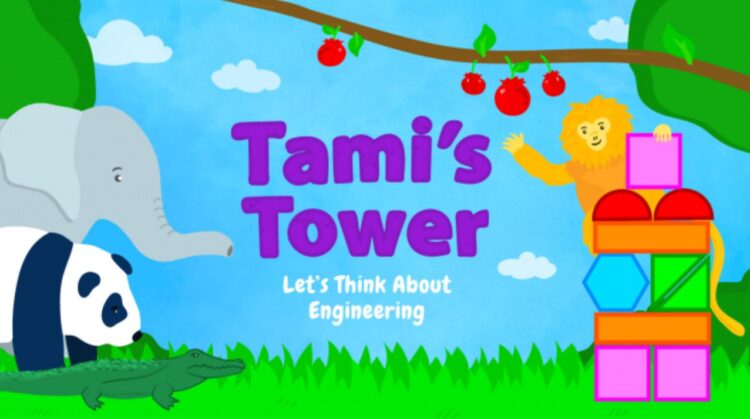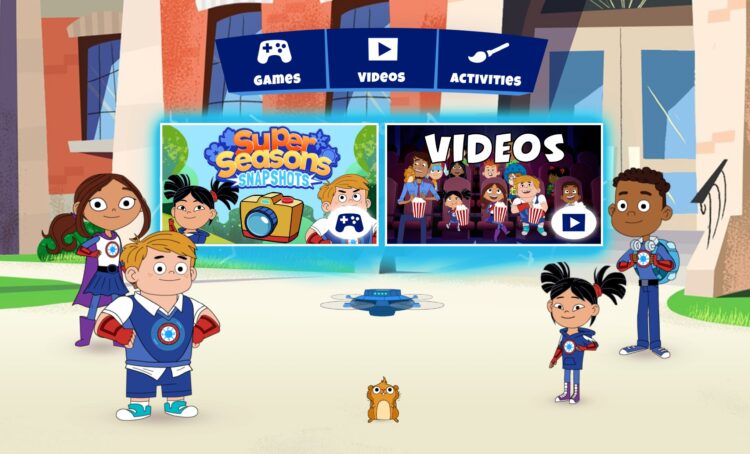STEM subjects may seem complicated at first glance for children, but through the use of science games, learning STEM concepts becomes easy and fun!
Introduction
For those new to the world of STEM, it refers to educational topics related to Science, Technology, Engineering, and Math. As we all know, these subjects play a vital role in shaping our children’s education and future.
As the world gravitates towards a digital, tech-dominated era, the importance of these skills has grown, and kids who learn STEM concepts at an early age can comfortably navigate through this era.
With physics games and chemistry games, children can learn STEM at home and in school. Keep reading this article to discover the power of these science games and how they can be implemented in your child’s routine.
We’ll also provide a few free games you can start your kid’s STEM journey with at the end!
How Science Games Simplify Complicated STEM Concepts
The average gamer spends around $28.37 per month on gaming. This has encouraged educators worldwide to reap the wide array of benefits video games, such as games about photosynthesis, have to offer.
While general STEM subjects are often included in your child’s school curriculum, they may be finding these subjects difficult to study.
That’s where science games come into play as they simplify complicated STEM concepts through wonderfully designed games that can enhance your child’s learning abilities.
Of course, not all video games are useful when it comes to educating about STEM concepts. They need to be carefully constructed, keeping the subject matter in mind and making sure they remain appropriate for the target age group.
Successfully incorporating these science games free into your child’s routine can make STEM enjoyable to them from a young age. These games can help them develop several essential life skills that complicated STEM concepts teach including:
Critical thinking skills
Critical thinking is the process of analysis and evaluation of an issue to form a judgment. It involves analyzing thoughts and evaluating information through observation, reflection, experience, or reasoning.
When kids take part in STEM teaching games, they are encouraged to respond to questions/solve questions that require active engagement to understand the issue at hand. Through these games, children learn to apply logical processes to provide a fix to situations.

Cognitive skills
Cognitive skills include memory (Retention), reasoning skills, problem-solving skills, and thinking skills. Chemistry games, physics games, and other general science games can help children use all of these abilities to organize their perception of the world around them.
Children can strengthen their cognitive skills through these games and develop amazing cognitive abilities.
Creative skills
Through these games, children develop the ability to think ‘outside the box’. STEM games focus on encouraging children to come up with original ideas to solve problems.
Evaluation skills
STEM games, such as games about photosynthesis, provide tons of data, and players have to understand and interpret this data to make use of the available information.
Through this, children learn the essential role of evaluation, and they evaluate if their design will be successful enough to go on. This essential life skill comes in handy in various areas of life!
In the future, several careers are going to focused around STEM concepts, or they will be incorporated with various STEM components.
As a result, it’s vital for STEM to be introduced in an early stage of a child’s life. This will help them develop the required skills that they can use to succeed in their job environments.
Fostering Interest in STEM through Science Games
Not all children enjoy complicated subjects like Science, Technology, Engineering, and Math; however, children do enjoy playing games!
When these games have STEM concepts ingrained in them, they become valuable assets for teaching children vital STEM concepts in a fun, engaging way.
Let’s look at a few ways these games can foster children’s interest in STEM concepts:
Fun to Play
When STEM concepts are mixed with fun chemistry games or physics games, the result is a fun activity packed with valuable information!
These games allow children to learn in a fun way with tons of animations and exciting rewards that encourage them to keep playing.
Plus, getting to see STEM concepts being re-enacted in animations visually helps children understand them better rather than just reading about them.
Most of these fun games are packed with exciting levels, and passing a level provides an added boost of motivation through fun music encouraging children to continue their adventure.

Active Participation
As mentioned above, reading about STEM concepts is one thing. Actively participating in them or seeing them happen live is a completely different ballgame!
Through science games freely available on the internet, children can get an up-close view of the value of learning STEM concepts and implementing them successfully.
These games provide children the opportunity to engage with various complicated concepts that can help them understand complicated subjects, like engineering or math.
Builds Confidence
Having confidence is like having a superpower! Once kids master playing these games, they start believing more in themselves when faced with tough STEM concepts.
Since they’ve already come across these concepts in a game, they are more likely to master them now and less likely to fear them.
For reference, several kids have math anxiety that causes them to not even start learning math properly because they have a fear of it.
Once kids build the required confidence through fun and engaging games, they will possess the confidence to tackle various STEM concepts in real life head-on.
Strategies for Integrating Science Games in Education
Due to the challenging nature of STEM subjects, many believe you have to be a certain type to learn these skills.
However, science games have broken this belief by teaching STEM skills to kids worldwide through exciting innovative methods.
The majority of upcoming jobs are focused on these fields (Science, Technology, Engineering, and Math), and learning skills like problem-solving and coding could be crucial for children of all ages.
So, what strategies can be implemented to integrate STEM games into education? Let’s have a look:
Using Games as Simulators:
If teachers start using these games as simulators to teach STEM subjects, it could have a positive impact on the way children perceive them.
Presenting educational knowledge in game form allows children to learn while having fun, and also takes the pressure of learning out of the equation. When these games are used, children are not focused on being tested for STEM knowledge, they’re enjoying playing the game!
Using these science games free simulators in school allows children to learn how different things work and helps them adjust to the real world.

Demonstrating Real-Life Purpose:
Teaching a child a concept works best when you can demonstrate the real purpose behind the piece of information you are providing them.
For example, learning coding for children would make no sense unless they knew about the magnificent potential coding has. Hence, teachers should demonstrate what STEM concepts will help children accomplish, and chemistry and physics games are perfect at doing this.
For example, games about photosynthesis help children see how photosynthesis actually works through practical application rather than just reading about it in a book. When children see how these concepts affect their lives, they’re more likely to engage with these subjects.
Highlighting Potential Opportunities
We’ve all heard children talk about how math is pointless and how they don’t have to use it to do anything important. Keeping this in mind, teachers could show students the opportunities that are linked to developing STEM skills such as mathematics.
Science games can help by showing the potential exciting careers and opportunities these basic STEM skills can lead to.
A Few Free Games to Start With
Let’s look at a few free games you can start with to help your child achieve their true potential:
Tami’s Tower: Let’s Think About Engineering

Tami’s Tower is one of the top games launched by the Smithsonian Science Education Center.
It’s an educational engineering design game that helps children of all ages learn how to design solutions to problems using basic engineering principles.
In the game, Tami (the golden lion) is hungry, and you have to help Tami reach the delicious fruit by building a tower, all while making sure the other animals don’t cause Tami’s tower to fall!
This game can be played on both desktop and smartphones.
Showbiz Safari

Another fine pick in the STEM games section is Showbiz Safari by the Smithsonian Science Education Center. It’s an educational life science game that helps children learn about the diversity of plants and animals.
In this game, you have to help the movie director by picking actors based on the traits that best fit the movie role. For example, which water-loving actor is going to get the leading role in ‘Swimmin’ in the Rain’? Use your skills and figure it out!
Showbiz Safari is available on desktop and smartphones.
Hero Elementary:

Another fine pick is Hero Elementary by PBS Games, a game based on helping children master scientific concepts such as flying and teleportation.
In the game, you’re in a school of superheroes where you have to learn to master superpowers to help the world become a better place.
When their superpowers don’t do the job, they look to their other power — the superpower of science — to help them investigate, observe, make predictions, and figure out a solution.
This game is available on desktop and smartphones.
The Bottom Line
Children are curious by nature and it’s essential to nurture this curiosity in STEM concepts to ensure that your child does not lose interest.
This starts by identifying where your child’s interest lies. Once you know that, you can simply introduce science games revolving around that concept to help them learn actual STEM skills while having fun at the same time!
Nurturing these interests will help your child formulate a high-demand career path and a successful life.
STEM isn’t the only learning area that can be enhanced through great educational games! Here at Nerd’s Magazine, we love the idea of blending gaming and learning, so we have lots of other articles that dive into other areas of educational gaming. Here are a few to add to your reading list:
- 10 Best Online English Learning Games for Young Learners
- Top 10 Fun Art Games Online
- How Number Games Can Teach Your Child Their Numbers

Farah Jassawalla is a technology enthusiast with a keen interest in AI, ML, and anything digital. Her passion for technology extends into her work as she currently manages the blog and social media for one of Canada’s most awarded tech and IT companies, in addition to consulting and writing for other brands. She’s an avid reader, writer, and researcher who is always looking out for the next big update in the digital world.













Leave a Reply